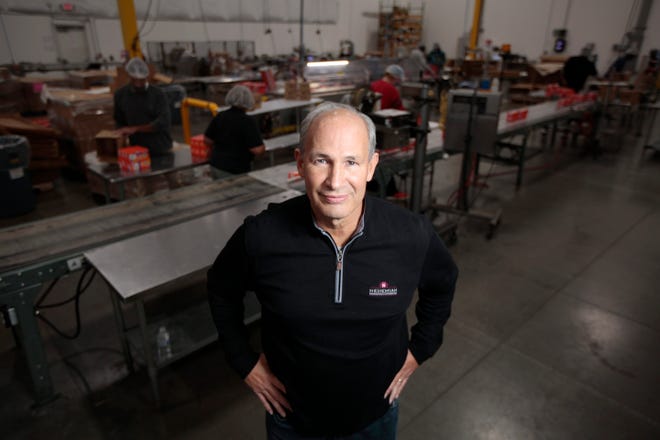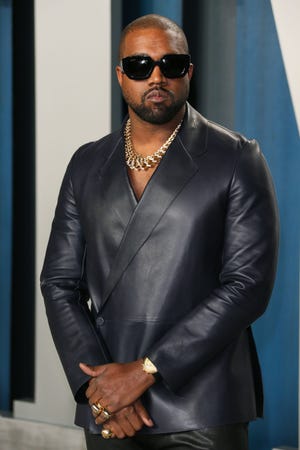Elaine L. Chao

On a beautiful spring morning, my day began with a cup of coffee, an enchanting serenade from a songbird outside my kitchen window, and a hateful e-mail entitled: “Go back to China, China woman.”
We are Americans. I was born in Taiwan and came to America when I was 8 years old. I received my citizenship when I was 19 years old. But for those who weaponize ethnicity, “Go back to Taiwan, Taiwan woman” would not be the slur they seek. It wasn’t the first such missive and won’t be the last.
Others – also targeted because of their ancestry – have suffered far worse abuse, including savage beatings and even murder. It is outrageous that in 21st century America, any of our fellow citizens and residents have to live in fear and endure such attacks because they look like their ancestors didn’t come here on the Mayflower.
Alarming COVID-era rise in hate
Since the start of the COVID-19 pandemic, we have seen an alarming increase in anti-Asian bias, hate and deadly violence. Despite having worked at the highest levels of the federal government and having dedicated myself to a life of public service, even I am not immune to these malicious attacks, false narratives and accusations of disloyalty to America.
Such repulsive rhetoric is unfortunately not new; every time my husband runs for office, the opposition finds no problem questioning my ethnic heritage and patriotism and mobilizing it against us.
Even the media has lodged baseless attacks against me and my family. Yet, all of this pales in comparison with the physical threats and intimidation that Asians are facing in America as they continue to be scapegoated for the pandemic. It is heartbreaking especially as we recognize May as Asian American and Pacific Islander Heritage Month – a time when our nation is supposed to be celebrating this community’s achievements and contributions.

Like so many others, my family came to America for the opportunity of a better future. My father scored No. 1 in the national examinations in Taiwan and was given the chance to study abroad. My parents knew if they could come to America, they would have a shot at the American dream.
Without money or documentation for a seven-month pregnant wife and two young daughters, my father came to America alone. It took him three years before he was able to bring us to America.
'People of color' terminology:After Asian American hate, I'm reclaiming racial solidarity and the term 'people of color'
The initial years were difficult; we didn’t speak English and lived in a small one-bedroom apartment in Queens, New York. But my parents were confident that America was the land of opportunities. This is the dream of millions of Americans.
We are bound together by an idea and not by what we look like. Americans, therefore, look like the rest of the world. The best and the brightest come to our shores, seeking a better future, and in turn, their dreams and aspirations propel our nation to thrive.
AAPI community must be more visible
Asian Americans and Pacific Islanders (AAPI) are an essential part of the American story: We make up almost 7% of the U.S. population. And despite being underrepresented in American history books, AAPIs have been an integral part of this nation for hundreds of years.
While we are now more accomplished and integrated than before, the AAPI community is often not seen as influential. Our community possesses a collective buying power of $1 trillion, but American media, products and campaigns do not recognize us nearly enough. Within the Asian American and Pacific Islander communities, there is a growing awareness of the need to be more visible and vocal.
One such promising organization is The Asian American Foundation, established last week by a group of prominent Asian American entrepreneurs to combat anti-Asian violence and discrimination and fund various important programmatic initiatives. Their historic effort to raise record amounts of resources to support AAPI organizations and initiatives is commendable. During my tenure as both U.S. secretary of Labor and U.S. secretary of Transportation, I have sought to improve access to greater opportunities by underserved communities, including the Asian American and Pacific Islander community. Since leaving federal office, I am committed to continuing those efforts.
Hopefully, this Asian American and Pacific Islander Heritage Month will increase appreciation for how America’s diversity and freedoms are, and have always been, its greatest strengths.
Elaine L. Chao (@SecElaineChao), the first Asian American woman to be named to a president's Cabinet, was secretary of Labor in the George W. Bush administration and secretary of Transportation in the Trump administration. Her eight years as Bush's Labor secretary made her the longest serving Cabinet member since World War II.








